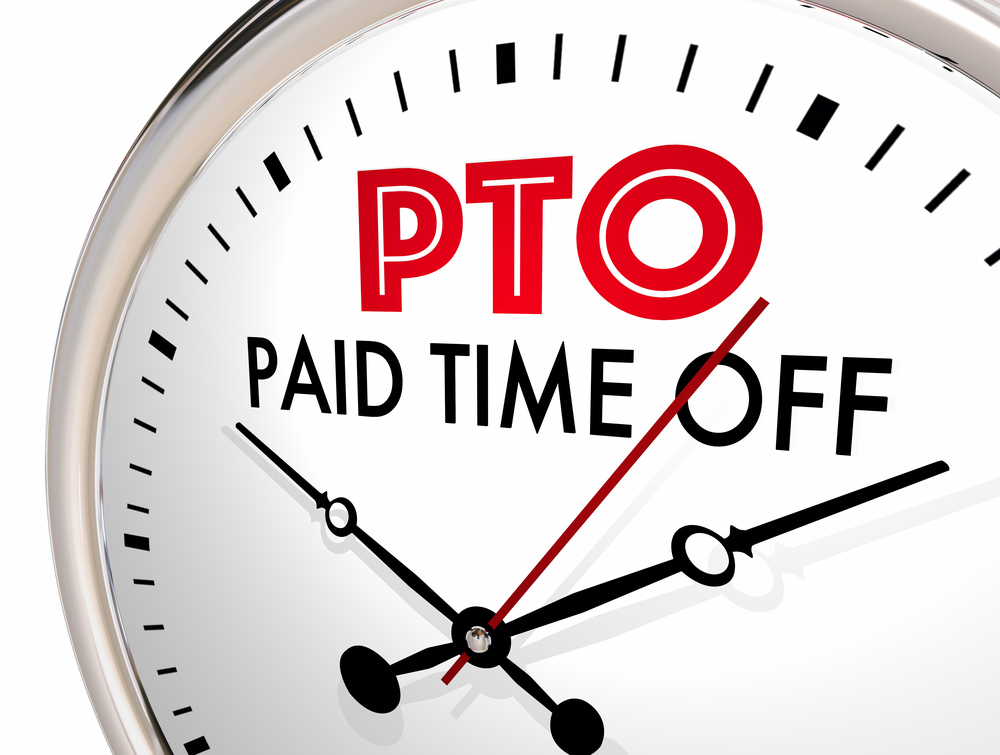The COVID-19 pandemic has created much uncertainty in the employment sector. One issue employers are facing is how to handle paid time off (PTO) payouts.
Avoiding Constructive Receipt
Many PTO plans allow employees to make an election in 2019 to cash out a certain amount of PTO during 2020. The payouts often take place once or twice a year on a set date.
The election is made in the prior year to avoid a tax rule known as “constructive receipt.” If employees were given the option to either cash out or roll over unused PTO, the constructive receipt rule would say they have constructively received all of the unused PTO during that year. The result is that the employees are taxed on the full amount of the PTO—including the portion they chose to roll over to the next year, even though they didn’t actually receive the money.
By having your employees make the election in the prior year before the current year PTO has accrued, the tax issue is avoided, and they are taxed only on the PTO actually taken and the PTO payouts actually received. The PTO an employee elects to roll over to the next year isn’t taxed until it is eventually paid some time down the road.
PTO FAQs
Facing a modified set of paid leave rules along with general financial uncertainty, many employers are wondering how to handle PTO payouts. Below are a few common questions we have seen pop up, along with our recommended course of action.
Our employee made an election in 2019 to take a certain amount of PTO as a payout in 2020. Our plan provides for two payout dates—one in May and one in November. Can she delay taking her payout until the November date?
Yes, so long as the PTO payout is received in 2020, there shouldn’t be a constructive receipt issue. The U.S. tax system runs on an annual basis, and the PTO would be included in income in 2020 regardless of the payout date. Be sure to obtain written consent from the employee to delay the payment.
Our employee made an election in 2019 to take a certain amount of PTO as a payout in November 2020. What happens if she doesn’t have enough remaining PTO in November to facilitate the payout?
From a tax perspective, this isn’t an issue. The election made in 2019 means she must cash out a certain amount of PTO during 2020 if she accrues that amount and if the PTO is actually available for payment. Many employers may find themselves in a situation where an employee has exhausted all PTO hours before the payout date. In that case, the employee will be taxed on the PTO when she takes it, and this doesn’t create any tax problems.
Example 1. Jane Employee anticipated accruing 80 hours of PTO during 2020 and made an election on December 15, 2019, to cash out 40 of those anticipated hours on November 1, 2020. She uses all 80 of her anticipated PTO hours before November 1, 2020. Because she used all her PTO hours, no hours are available for payout on November 1. The fact that she had previously elected to cash out 40 hours doesn’t have any adverse tax effect on her or the employer. Since the hours aren’t available to cash out, no PTO payout is made on November 1.
Example 2. Jack Employee anticipated accruing 80 hours of PTO during 2020 and made an election on December 15, 2019, to cash out 40 of those anticipated hours on November 1, 2020. He uses none of his anticipated PTO hours during 2020. His employer must make a PTO payout of 40 hours on November 1. He may use the remainder of his PTO hours during the rest of 2020 (in which case they will be taxed as wages), or he may roll over the hours to be used in a future year, or a combination of the two. The employer cannot pay out the remaining 40 hours as a PTO payout because he elected to take a PTO payout of only 40 hours, which was previously paid on November 1.
Our company is facing financial uncertainty as a result of COVID-19 and is concerned about our ability to make PTO payouts that were elected in 2019 for PTO hours accrued in 2020. What options do we have?
One option would be to suspend the program temporarily until your company can make the payments. An election made in 2019 applies only to PTO hours accrued by your employees in 2020. By suspending the program temporarily, your employees would have accrued PTO only from January 1, 2020, through the date the program is suspended.
To avoid negative tax consequences for your employees, you must continue to make payouts for PTO accrued in 2020 for which they have made a previous election. If the payout isn’t made, the IRS views the fact the employer and employee aren’t following the 2019 election as if the employee is constructively receiving all accrued PTO. The result is that the employee is taxed on the full amount of PTO accrued in 2020 whether she actually receives it or not.
Another option would be to obtain written employee consent to make the PTO payouts later in 2020. So long as the elections are followed and PTO payouts are made during 2020, there should be no issues with constructive receipt.
Michael A. Gilmer and Jo Ellen Whitney are attorneys with the Davis Brown Law Firm in Des Moines, Iowa. You can reach them at michaelgilmer@davisbrownlaw.com and joellenwhitney@davisbrownlaw.com.

